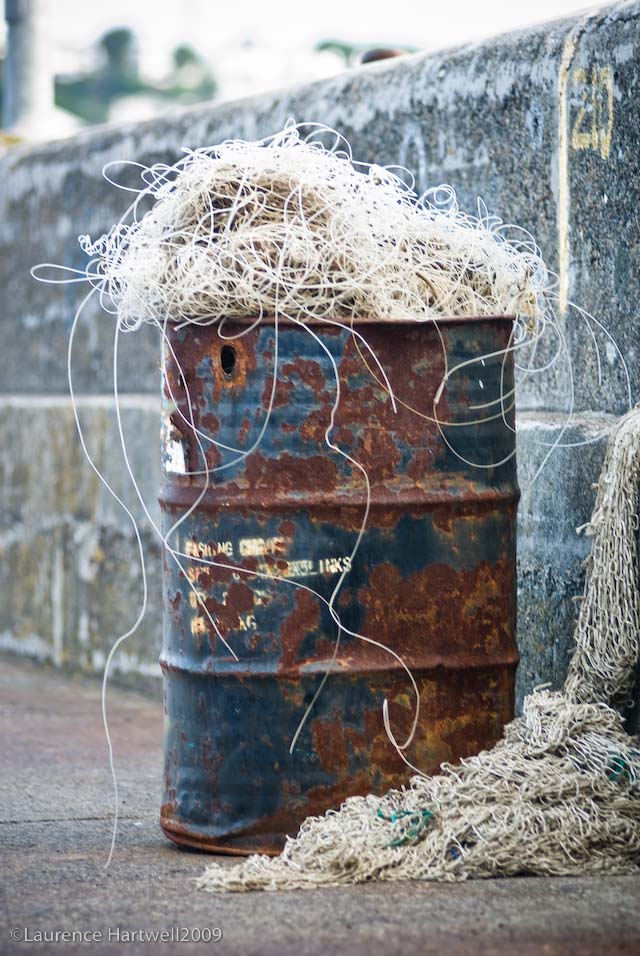Welcome to Through the Gaps, the UK fishing industry's most comprehensive information and image resource. Newlyn is England's largest fish market and where over 50 species are regularly landed from handline, trawl, net, ring net and pot vessels including #MSC Certified #Hake, #Cornish Sardine, handlined bass, pollack and mackerel. Art work, graphics and digital fishing industry images available from stock or on commission.
Saturday 22 March 2014
All hail Sunshine, sleet and showers on Saturday!
Looks like it might be a while before the promenade and Newlyn Green are restored to their former glory #makehay...
three coasters shelter in the Bay...
off the back of Newlyn...
back goes those boxes for the green team...
not quite a matching pair...
the hands that do boxes, and more...
a brace of Brixham beamers, Lady Lou and Sarah Louise...
back to sea for the William Sampson...
as a new crew put their backs into Mount's Bay Gig team's latest gig the Breeze...
as they make a break for open water through the gaps...
pulling pretty tight together...
sailing day for some...
sheltering day for others...
another repair job for the welding shore staff...
beamers nose-to-tail in berth...
making way...
the MCA signage seems a bit over the top...
back in to port for the gig rowers.
Friday 21 March 2014
It's a fun-filled #FishyFriday
Dover's delight from the WSS...
and the monk fish get the Cefas data collection treatment in the early hours...
with many of the fleet between trips still in port...
there's a chance for more university students to become fish smart, with them getting the low-down on Atlantic hake of which there are plenty in the sea......
as the netter Sparkling Line gets to put his fish ashore...
with the weather feeling a little more Spring-like every day this week.
Tweets from the deep - trawler skipper David Warwick used social media to talk fishing while at sea
Last year, Cornish fisherman David Warwick tweeted his day at sea to provide a glimpse into the life of a commercial fisherman.
Here is his story:
I love being a fisherman.
The days are long and can be cold. The weather can be miserable and frankly scary. It’s no secret that it’s a dangerous job. Lives are lost by men just trying to earn a living; trying to feed their families.
Then there are the rules and regulations. Ministers who know very little, if anything, about the job of fishing make detailed regulations that often make little or no sense at the level of a fishing vessel.
On top of this it is a largely thankless task. Newspapers call us sea barons and pillagers, accusing us of plundering oceans for commercial gain. Yet the reality could not be more different.
Closer collaboration between fishermen and scientists has meant better data on fish stocks and the marine ecosystem. The industry’s views are now incorporated into the political and environmental process. Together, through the Fisheries Science Partnership, we carry out a wide range of studies looking at ecosystems and fish biomass in order to limit our impact and ultimately improve stocks.
After 70 years of incremental increases in fishing pressure, the scientists have since 2000 shown a dramatic turnaround. So, why do I love my job?
Well, clearly from everything I’ve outlined above, you simply wouldn’t do it if you didn’t love it. If we could provide a true image of the industry, you’d see it was made up of families and communities, close knit and humble, a fishing fraternity that takes pride in the fact it is providing food security to this island nation. And we are doing so in a sustainable and considerate way. I followed my father’s footsteps into this industry and I hope, if he chooses, my two year old son will do the same. Many of my fishing colleagues feel as I do and we are working hard to ensure the industry is there in the future for our children and our children’s children. And despite our tireless work in the wind and rain, collaboration with scientists and endeavours to become involved in the political process, ignorance is still rife.
‘Tweets from the Deep’ is a great way to show people what life as a fisherman is really like; to perhaps demonstrate the hurdles we jump through, the pressures we endure and the risks we take to put food on plates.
Thursday 20 March 2014
Help Plymouth University research student Kayleigh out - she wants your views on Fishing and Marine Litter - cash prizes!
 |
| Many Newlyn vessels contribute to the Fishing for Litter Scheme run by KIMO |
- The environment
- The fishing industry
- Harbour authorities
- Individual fishers
In order to explore this I am conducting short online or phone interviews with fishermen, only taking about 10 minutes. As a thank you, there are also cash prizes.
I was hoping you'd be happy to help, by either 1) sharing your views and participating in the study and/or 2) spreading the word by sharing the advert (www.bit.do/research-help) or tweeting the link (www.bit.do/marinelitter or the full link https://www.surveymonkey.com/s/Marine_Litter). It’s also on the NFFO website: http://www.nffo.org.uk/news/fishing_for_litter.html
 |
| Discarded Spanish longlines |
Campus do Mar webTV video conference "The Barefoot Ecologist's toolbox"by Jeremy Prince, professor of Murdoch University (Australia) in La Coruna
This was a superb conference delivered by Jeremy Prince for championing the collection and use of data collected by the people best placed to provide such data - the fishermen who actually do the job full time.
Research vessels with on-board scientists collecting data according to long term projects have their place but the very best data is that collected during everyday fishing by the industry itself - this conference sought to discuss ways in which this huge bank of knowledge can be validated and used to inform scientific research and strategic fisheries planning for the future.
Following the talk questions were taken from the floor - many extremely relevant to both inshore and offshore fishing sectors in the UK.
Research vessels with on-board scientists collecting data according to long term projects have their place but the very best data is that collected during everyday fishing by the industry itself - this conference sought to discuss ways in which this huge bank of knowledge can be validated and used to inform scientific research and strategic fisheries planning for the future.
Following the talk questions were taken from the floor - many extremely relevant to both inshore and offshore fishing sectors in the UK.
HAVE YOUR HAKE AND EAT IT!
Is Hake UK’s Current Most Sustainable Fish?
#eatmorefish
Leading Chef and UK Fishing Industry Unite To Champion Hake as UK’s Current Most Sustainable Fish
The voice of the UK fishing industry and one of the country’s leading seafood chefs have joined forces to encourage British restaurants and retailers to put hake on the menu after finding it to currently be the ‘UK’s most sustainable fish’.
The campaign comes after new research* revealed that half of us (52 per cent) eat fish at least once a week and one in five (19 per cent) eat it around three times a week – yet the majority of people rarely stray from the ‘seafood staples’ of cod, haddock and salmon.
The National Federation of Fishermen’s Organisations (NFFO), which represents fishermen in England, Wales and Northern Ireland, has joined forces with leading seafood chef, food writer and restaurateur Mitch Tonks to launch a series of free recipe cards encouraging the British public to consider hake in their diet, after crowning it the ‘UK’s most sustainable fish’.
Hake was named as the UK’s current sustainability champion fish after the NFFO conducted an evaluation of stock and catch data against a criteria of 10 industry sustainability markers. Hake, against very stiff competition from other species, currently meets more of the standards than any other species.
The Food Standards Agency recommends eating at least two portions of fish a week1. Hake, a species closely related to cod and haddock, is commonly eaten in Europe, with the Spanish annually consuming 6kg per person – equating to around half of all hake eaten across the continent. With scientific research showing burgeoning stock levels of hake in UK waters2, catch quota for the fish has been increased by 49 per cent in 2014. However, of the 12,000 tonnes of hake caught by British fishermen last year, just 1.5 per cent was consumed in the UK.
Despite the popularity of fish as a healthy food source, NFFO research* spanning 1,000 consumers revealed many fish eaters have never tried some of the UK’s most sustainable fish species. Around half of people surveyed had never tried hake (53 per cent) or pollock (47 per cent), whilst two thirds of people (62 per cent) had never tried coley.
The top reasons people cited for not trying alternative types of fish included the retail price (30 per cent), not liking the look of the fish / considering it ugly (24 per cent) and poor availability in supermarkets (11 per cent).
To identify the most sustainable fish, the federation identified those stocks fished at or above maximum sustainable yield (MSY) – considered the gold standard of sustainable fishing. This measures the maximum catch that can be removed from the sea without jeopardising its future. Hake also adheres to a number of other sustainability markers identified by the NFFO.
The NFFO’s chief executive, Barrie Deas, said: “In the last decade, the UK fishing industry has worked closely with scientists to improve the sustainability of commercial fishing, developing more selective gear and catching methods which reduce the ecological footprint of fishing. Over that time we have witnessed a dramatic reduction in fishing pressure across all of the main species groups and across the North East Atlantic fish stocks are building, some very rapidly.
“In the sustainability stakes I’m pleased to say hake faces stiff competition as many stocks, including plaice, haddock, herring and sole, ticked many of the boxes. In some stocks, including cod, mortality rates have been halved pushing them up the sustainability rankings. UK fishermen realise that their future is intimately linked to the way that they fish and now sustainability is at the heart of everything they do.
Mitch Tonks added: “Anything we can do to encourage people to try more fresh, sustainable fish whilst supporting UK fishermen can only be a good thing. Hake is always a popular option at my own restaurants and it’s readily available through fishmongers and retailers. It’s a white fish which is simple to adapt different recipes and flavours to and as such I hope more people give it a try.”
New research from the National Federation of Fishermen’s Organisations has found hake to currently be the UK’s most sustainable fish.
The NFFO conducted an evaluation of stock and catch data of the UK’s most commonly caught species against a criteria of 10 industry sustainability markers and hake, against very stiff competition from other species, currently meets more of the standards than any other species.
However, of the 12,000 tonnes of hake caught by British fishermen last year, just 1.5 per cent was consumed in the UK.
To encourage more of us to try Hake the NFFO has teamed up with leading seafood chef Mitch Tonks to create these downloadable hake recipes. Please click on the links below.
Newlyn and the affects of the storms on the One Show
Newlyn fishing industry featured on the One Show covering the plight of an industry brought to its knees during the most prolonged period of stormy in living memory.
Keith Dixon, skipper of the Mission in Newlyn talks emotionally about the huge support shown by the people of the UK who have enabled him and other Mission staff to distribute financial support to desperate fishing families who have been directly affected by the storms and seen their income cut to zero.
Subscribe to:
Posts (Atom)





























